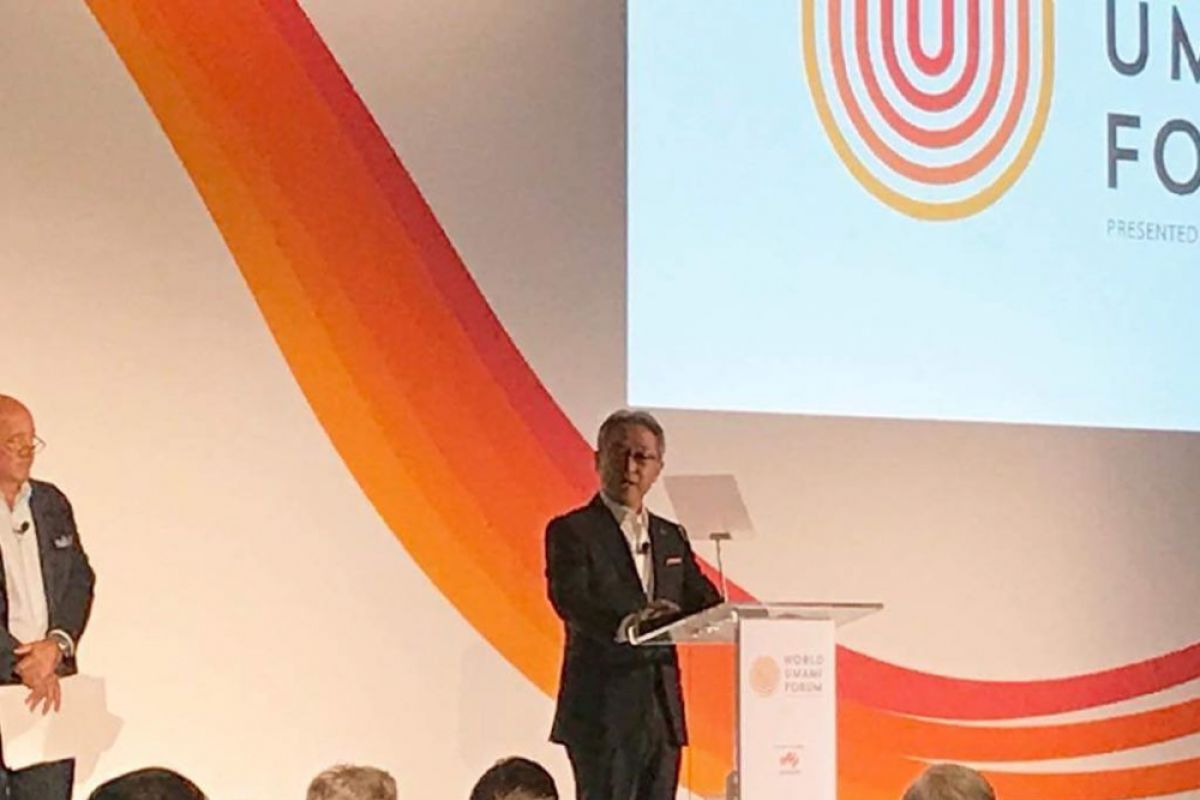Takaaki Nishii, CEO and President, Ajinomoto Co., Inc. hopes that with this forum which involving various experts, the deepening of understanding about Umami/MSG and its important role in food, especially in America, would be able to be done.
"In this forum, I also expect there will be in-depth and transparent discussion, so understanding of Umami as a whole can be well communicated to all interested parties," said Mr. Nishii.
At the forum, the presenters argued with plenty of research evidence that MSG did not cause such a syndrome(“ such a syndrome” is suddenly mentioned but explanation on syndrome should be made). For example, Sarah Lohman, Culinary Historian and the author of "Eight Flavors: The Untold Story of American Cuisine" said, “The anti-processed food movement in recent years created the negative image of MSG, but it is simply a crystalized form of glutamate and salt that causes no harm to your body.”
Harold McGee –famous food scientist explain, “MSG is just another form of umami, and the myth like Chinese Restaurant Syndrome is not true at all.”
Prof. Purwiyatno Hariyadi, expert of food technology from Bogor Agriculture Institute (IPB) who attend this event, said "World Umami Forum is an excellent event. The speaker presented was a competent person in his field, I got new knowledge ranging from umami history in the world, consumer behavior regarding MSG and umami in America, as well as updates on the development of knowledge about taste, as well as demonstrations from chefs exploring umami as a universal taste for improve the quality of food delicacy, " Prof. Pur explained.
Research by the Institute of Medicine Of The National Academies-Washington, D.C. entitled "Strategies to Reduce Sodium Intake in the United States" was also presented at the event. The research explains, usage of umami as one of strategy to reduce sodium (Na) intake.
This is because, even though both contain sodium, but in the same gram; MSG contains less sodium (12.2%) than kitchen salt (Na Cl) which contains 39.3% sodium.
"So, reformulating the product, by combining kitchen salt and MSG, has the potential to reduce the sodium content of products by 30%," said Prof. Pur.
He added, the challenge regarding umami is that scientific facts must be effectively communicated to the community, and can be used as a good consideration for making decisions. "So, the decision is based on the latest scientific facts and not solely on issues and anecdotal," Prof. Pur concluded.
Reporter: PR Wire
Editor: PR Wire
Copyright © ANTARA 2018











